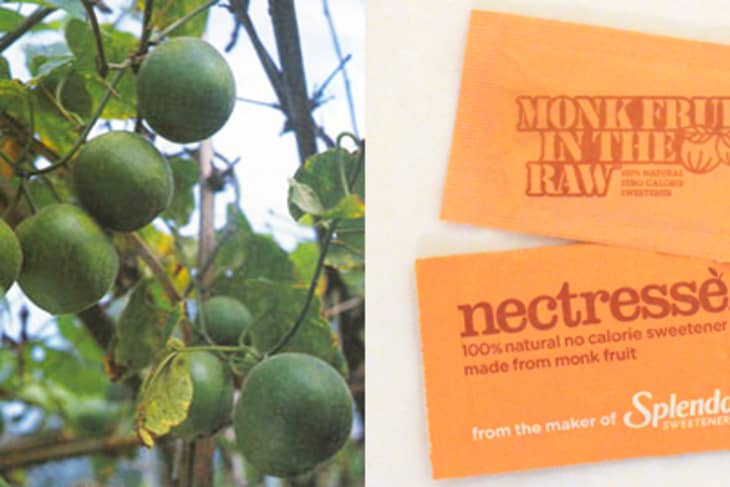Alternative Sweetener: Monk Fruit
Monk fruit is the latest darling of the alternative sweetener world, but what is this exotic fruit, and how does it compare to sugar and other substitutes?
The monk fruit is a small, sweet melon native to China and Southeast Asia. Legend has it that Buddhist monks cultivated the lemon-sized fruit in the 13th century. In China it’s known as luo han guo and has traditionally been used in herbal medicine. Now monk fruit-derived sweeteners have entered the Western market, where they are touted for having zero carbs and low or no calories.
Monk fruit sweeteners such as Monk Fruit In The Raw and Nectresse are made from monk fruit extract, which is 200 to 300 times sweeter than sugar. The consistency of these products is similar to granulated sugar. They are heat stable and can be used in cooking and baking, but they are so much sweeter than sugar that a 1-to-1 substitution is generally not recommended.
In a taste comparison of Monk Fruit In The Raw and Nectresse, my partner and I each preferred a different one. However, we agreed that Nectresse has a more intense and lingering sweetness; makes sense: Nectresse actually contains a blend of monk fruit extract, erythritol, sugar, and molasses. Monk Fruit In The Raw is made from monk fruit extract and corn-derived dextrose. Both sweeteners are free of the somewhat bitter aftertaste of stevia.
My own preference is to use less processed ingredients, so I don’t think I will cook with monk fruit sweeteners regularly. I can see the appeal, though, for those who need to watch calories, carbs, and glycemic load. Have you used monk fruit sweeteners? What are your thoughts?
Related: Alternative Sweeteners: What’s the Deal with Stevia?
Apartment Therapy Media makes every effort to test and review products fairly and transparently. The views expressed in this review are the personal views of the reviewer and this particular product review was not sponsored or paid for in any way by the manufacturer or an agent working on their behalf. However, the manufacturer did give us the product for testing and review purposes.
(Images: 1. Horizon Herbs; 2. Emily Han)
